It is perhaps the most common objection to homeschooling: what about socialization? For some people, the very idea of homeschooling conjures up images of homely kids who lack social skills and are lost in their own nerdy thoughts. Perhaps you’ve even met a few homeschooled misfits who have confirmed your suspicions.
If you’re interested in homeschooling but fear your kids will turn out to be social weirdos, here are some facts to consider…
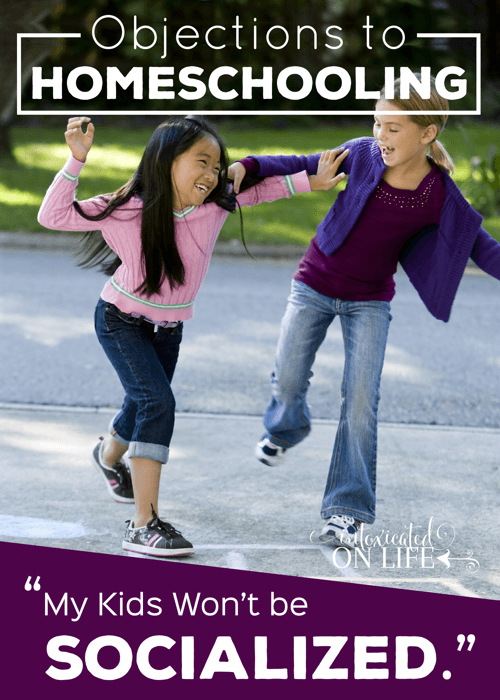
Fact #1: Public school churns out socially awkward people, too.
Homeschooling doesn’t have the market cornered on socially awkward kids. Anyone who went to public school can tell you they met their fair share of kids who lacked social skills, and yet these kids were surrounded in all the peer socialization they could handle.
Fact #2: Homeschooling isn’t anti-social. It offers a different kind of socialization.
Dr. Larry Shyers studied the social development test scores of 8-10-year-olds: half of them homeschooled, the other half attending either public or private schools. Not only did he find that the homeschooled children do not lag behind in social development, he found that homeschoolers have consistently fewer behavior problems.
Dr. Shyers concluded that proper social development “depends more on adult contact and less on contact with other children as previously thought.” Instead of modeling their behavior after their peers, homeschoolers tend to model their behavior after their parents.1
In other words, socially adept parents leads to socially adjusted kids.
Fact #3: Homeschooling frees parents to involve their kids in many social opportunities.
“Homeschooling” is a misnomer, in some ways. Perhaps it communicates the idea of wallflowers sitting alone at home with the curtains drawn, noses in their books. But for many homeschooling families, this is far from their experience.
Because homeschooling doesn’t have to take as long per day as public or private schooling, this frees up time to be involved in other community activities, programs, co-ops, and volunteerism. Far from feeling isolated, many children who are homeschooled are integrated into their communities.
Fact #4: Homeschoolers, by in large, are well adjusted folks.
Dr. Susan McDowell, in her book, But What About Socialization?, examined 24 studies about the socialization of homeschoolers, concluding that none of the research indicates that homeschooled kids are socially deficient. She concludes, “All the research shows children are doing well.”
Some studies on the socialization of homeschoolers focus on children’s “self-concept,” which is a key indicator for self-esteem and an ability to successfully interact with others. Using the Piers-Harris Children’s Self-Concept Scale, one study compared 224 homeschooled children with 1,183 conventionally schooled children. The study found that 50% of homeschoolers score above the 90th percentile, and only 10.3% score below the national average.2
Everything is just fine.
The concern that homeschooling, by itself, turns children into social weirdos is overblown. Granted, there are better and worse ways to homeschool children—but with some intentionality, most kids in homeschooling communities grow up to be socially well adjusted people.
Leave a comment
Let us know…
- What are your perceptions about homeschooling and socialization?
- What are other objections you’ve heard or you’ve had to homeschooling?

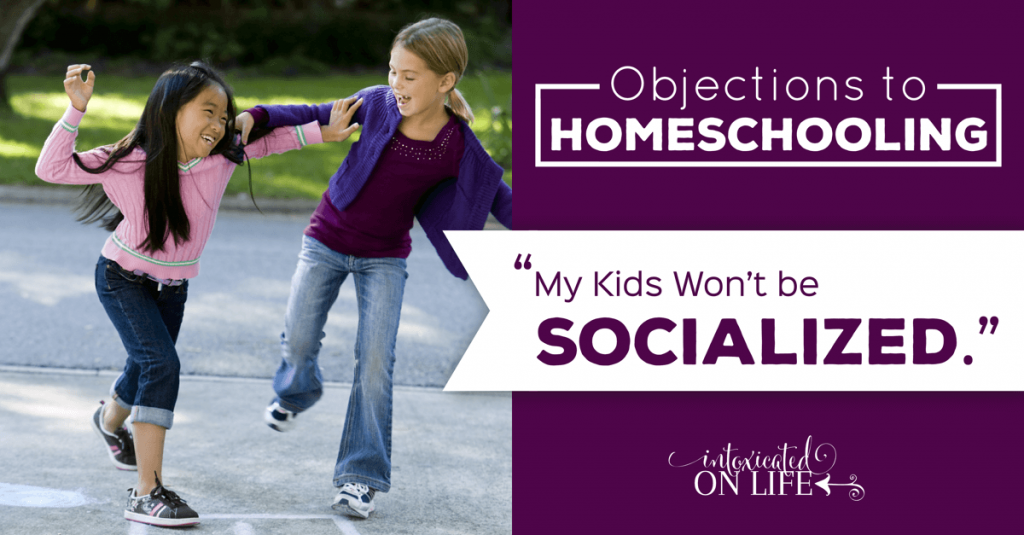

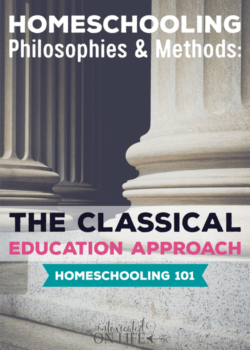



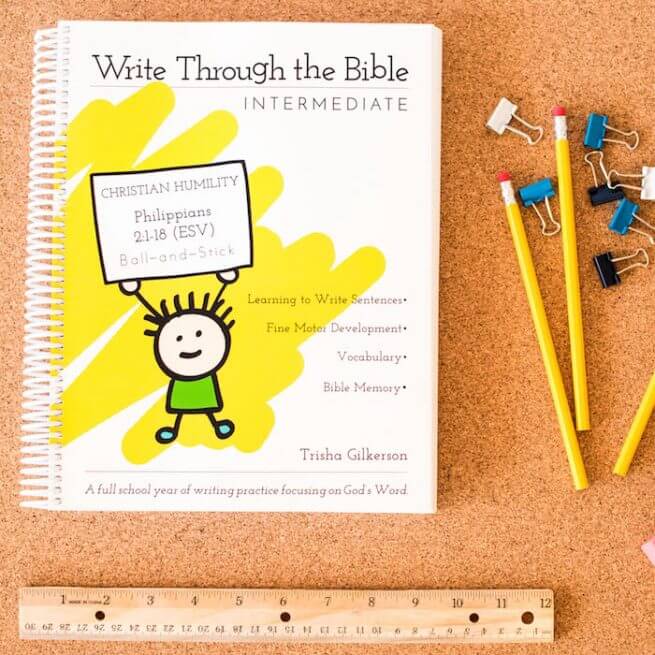
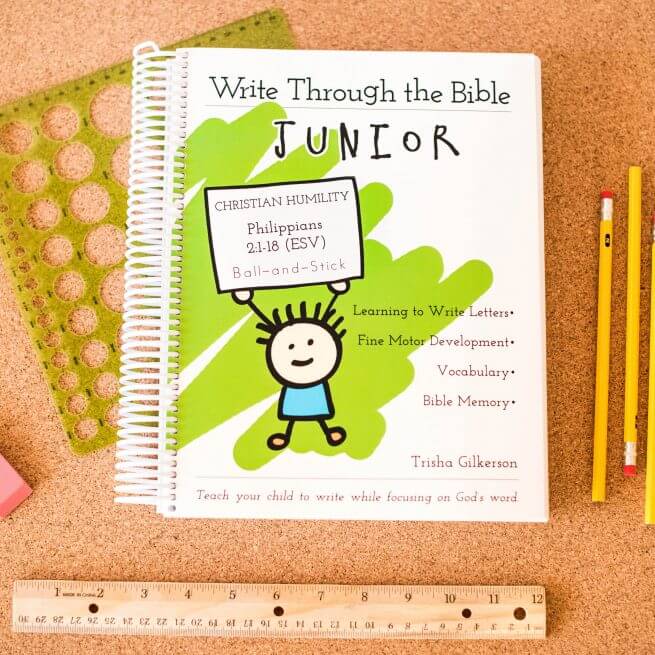


I’d really like for this myth to go away. I’m sure it won’t, at least not in my lifetime, though I’m also sure some are actually catching on! Either way, I know that our 3yo who learns primarily through play with minimal to no directed learning is much more socially aware and engaged that his cousins who are either in/going to school or attend childcare. For me, that’s plenty enough to be convinced that there’s no issue! 🙂
This was by far the most often criticism I received. I truly believe that when “society” couldn’t find an educational reason to oppose homeschooling, it turned to this bogus idea. Kids are socialized with the rest of the family. Thanks for sharing at #Let’sGetReal
After three years of homeschooling our daughter, I’ve realized she is socialized toward many more ages and “types” of people than she would find in a classroom at our local public school. She meets people of all sizes, colors, and shapes at the YMCA; she encounters many different folks on the bus and out in the city; and she can step up and talk with a librarian, store clerk, bus driver, or restaurant server as needed–which is far more “socialization” than I see most kids allowed or expected to experience.
Such great points, Luke. I was homeschooled with my 2 sisters and now I homeschool my own children- 5 boys. I heard the ‘how do you get socialization’ question all growing up and I hear it again now with my sons.
I really liked all of your points, but especially #1- that the school systems turn out socially awkward kids as well, probably more. I met homeschool kids who were awkward and I met school kids who were awkward. As an adult I notice more and more public school children who don’t even have basic social skills. To expect children to become ‘socialized’ by throwing them in with 30+ other unsocialized kids with little adult supervision and guidance is utter foolishness. Children learn from adults, especially their parents.
Proverbs 22:15
Foolishness is bound up in the heart of a child; The rod of correction will drive it far from him.
We can’t be a correcting force for foolishness if they’re surrounded daily by still more foolishness.
Thanks, Nichole. I agree.